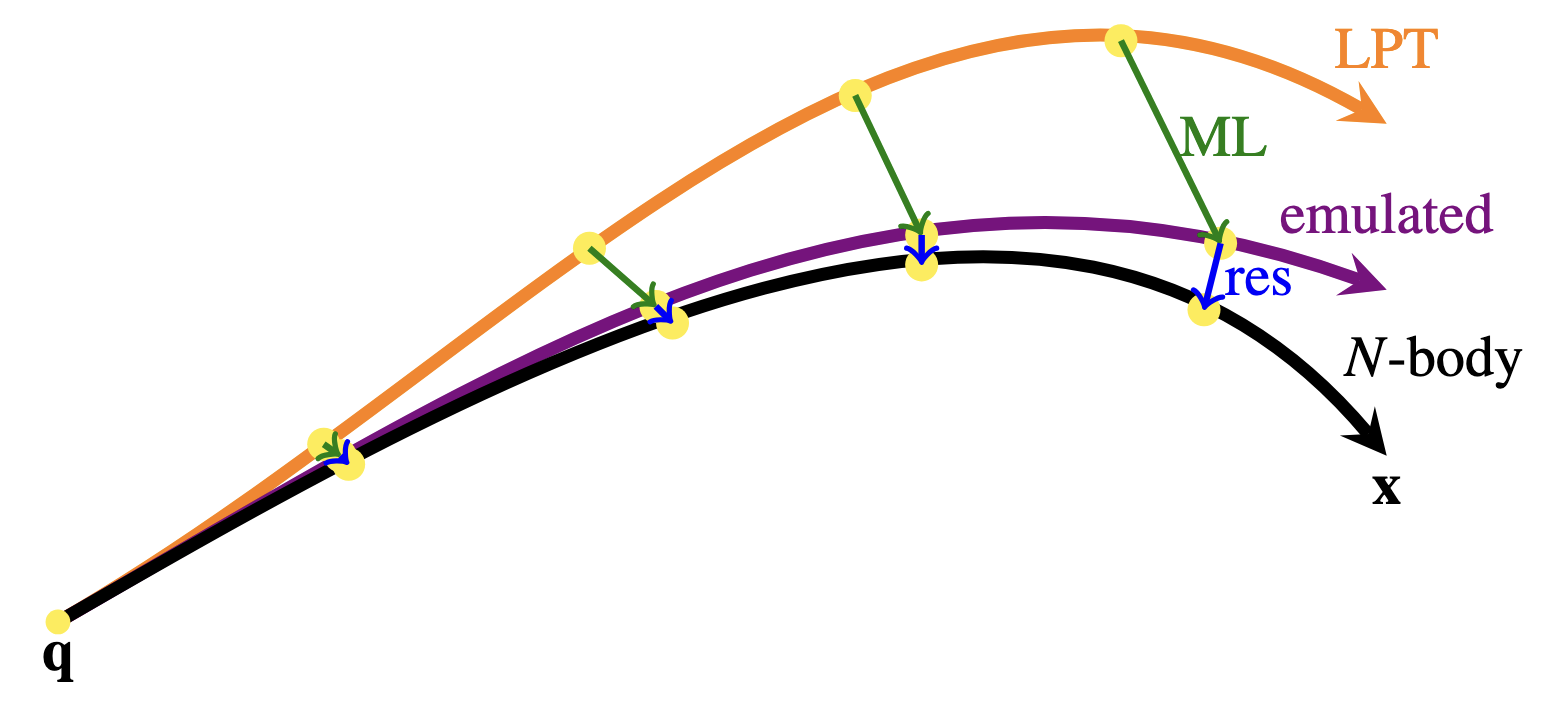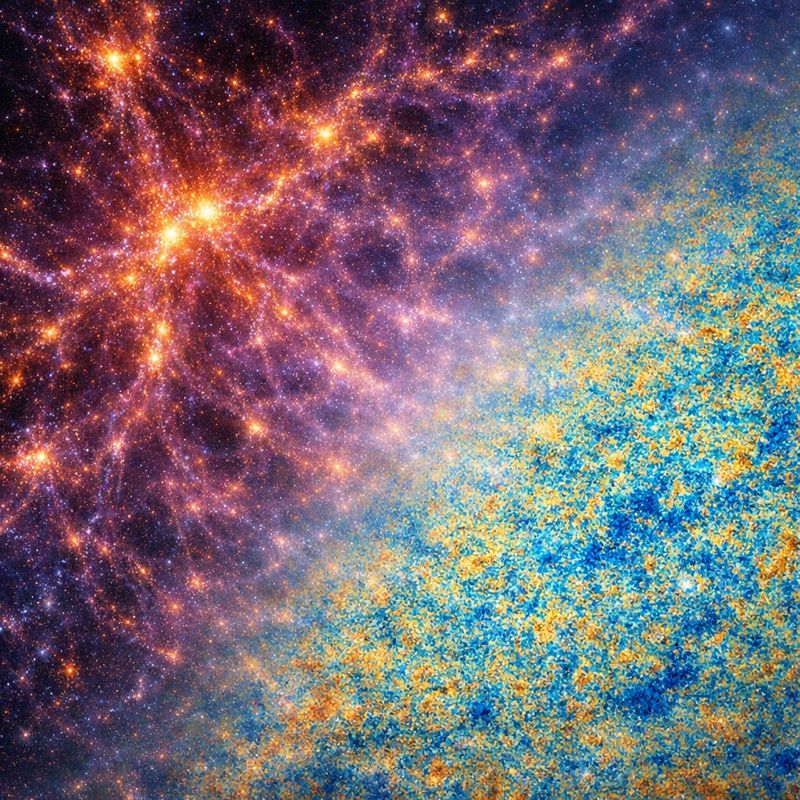Our mission
We are an international collaboration of researchers interested in developing and applying cutting-edge statistical inference techniques to study the content and properties of our Universe. We embrace the latest innovations in information theory and artificial intelligence to optimally extract physical information from data and use derived results to facilitate new discoveries.Get notified when new results are published @AquilaScience
Our latest results
COCA - N-body simulations in an emulated frame of reference
N-body simulations are key to cosmology but are computationally expensive. ML can speed them up, but can we trust the results? We propose a new method of combining ML and simulations (COmoving Computer Acceleration - COCA) which can catch mistakes made by ML and correct for them.
A 1.8% measurement of the Hubble constant from Cepheids alone
The strongest tension within the concordance model of cosmology is a mismatch between the Universe's expansion rate inferred from the cosmic microwave background vs the local distance ladder. We construct a Bayesian hierarchical model to infer this rate locally but without requiring supernovae. We still find a significant "Hubble tension", and achieve unprecedented precision by using BORG velocity fields.
Field-level large-scale structure meets the CMB
BORG is designed for local large-scale structure, but it has significant potential for CMB studies as well. We develop a framework for connecting constrained simulations to the thermal Sunyaez-Zel'dovich effect in the CMB, and use it to show the superiority of BORG relative to other methods and create a new calibration of the cluster mass-observable relation.


